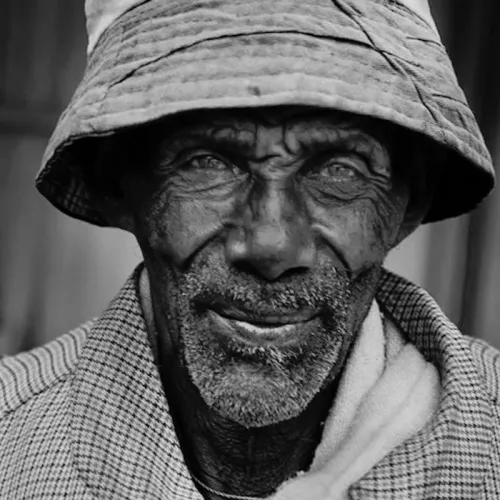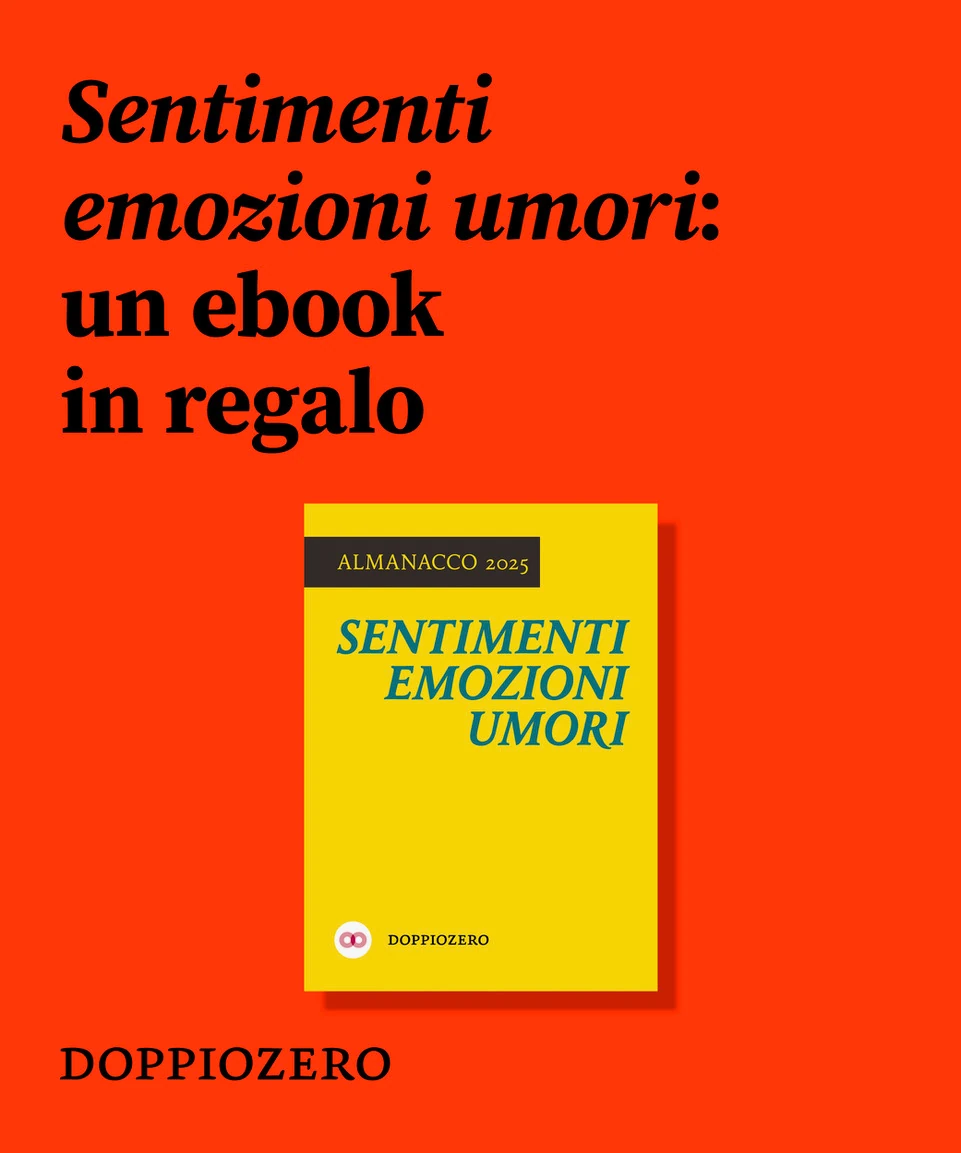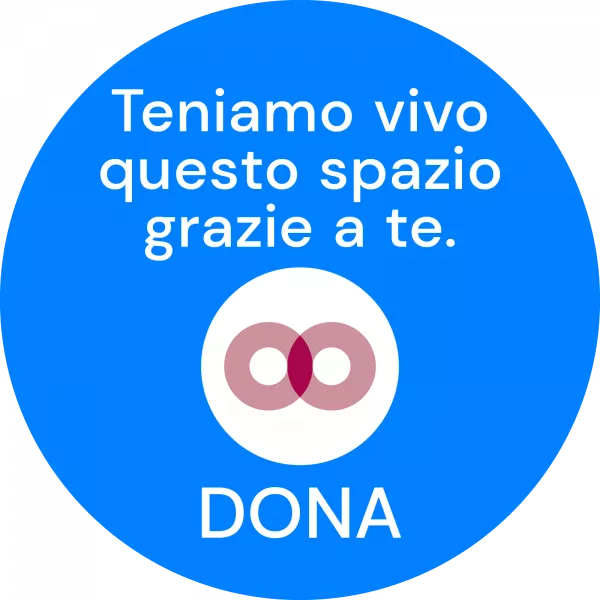Speciale
Space, Language, and a Creative Africa
The article below is written by Hanna Shybuna and is inspired by her AtWork Addis Chapter 06 experience. The intensive 5-day workshop, conducted by Simon Njami, took place in Addis Ababa in December 2016 in partnership with Aida Muluneh and Addis Foto Fest and involved 21 young Ethiopian photographers, writers, designers, visual artists and filmmakers. The theme “What is home?” has evoked some strong and contradictory emotions and atmospheres… here’s Hanna’s story.
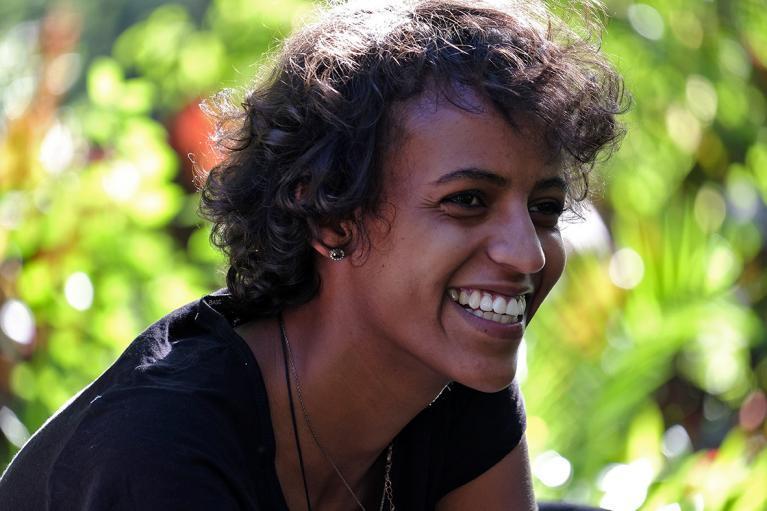 Hanna Shybuna at work, ph Raffaele Bellezza.
Hanna Shybuna at work, ph Raffaele Bellezza.
One morning, I decide to walk to the landmark of my neighborhood in Addis Ababa – a 5 decade-old patisserie, infamously going by the name Enrico. A hundred times I’ve eaten their mille-feuille but never before had I purchased the desserts myself. My friends and I joined the street-long queue; “when the cakes are ready, they release the smell to let the people know,” jokingly described by an old man behind us. This same man overheard me tell a story about a cat in English to my friends. He interrupted me to say in Amharic, “you don’t like to mix with people, do you?!” and used this moment of silence to explain that he feels the English speaking youth in Addis must be educated, intelligent, and capable beyond that of their counterparts. He continues to question himself: “is it just me, has that idea been forced into my mind, or is it fact?” We reassured him of the falsehood of this concept. He asked each of us to consider that despite where a person is from, everybody knows something, and though formal education is the most stable way to be useful and knowing languages is powerful, it is being in a space where one can thrive that allows excellence from each individual. That confrontation posed a pertinent point: English and the ideologies brought with it carry a dangerous air of elitism that seems to cast a strong shadow.
English, in its aggressive ubiquity, has proven to be a currency, a symbol of power and at times, a weapon – something I was armed with at an early age, propelled by my father’s insistence on the value of ever-enhancing English literacy skills. My parents’ choice to send me to a private school (dictated in this context by their ability to afford it) instead of a public institution both supplied and robbed me. I learned how Brits learned, encouraged to speak up and participate, to think critically and outside the box in every endeavor. Taught the history and language of the West and little of my own. At home, I doubled-down on my consumption of foreign philosophies, media, arts and culture via imported tools and was on a steady diet of the internet.
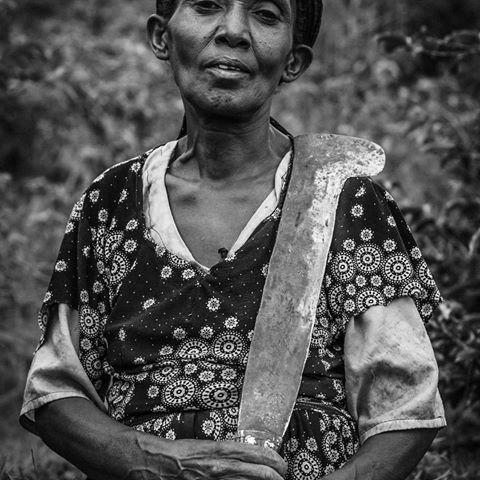
Naod Lemma, Ordinary existence.
At the time, I was unable to notice what I was giving up by mentally subscribing to the vividness of the outside, leaving me later to believe in the without-ness of this place, here. Everything surrounding me seemed to be an import, except for the average person, with whom I began having fewer and fewer things in common. When I moved to Charlotte, NC for my first degree, everyone was equally clueless about the place I called home. My time there was an exercise in describing, defining, and defending Ethiopia/Africa (something I was ill-equipped to do, only knowing well the city of Addis, and little to nothing about the rest). I used my trained English accent to explain the place responsible for my identity. But, all people could hear is my accent and to them, that seemed to mean any effort to inspect my identity further was unjustified, unnecessary.
I moved back to Ethiopia, where I am overwhelmed by resentment. Sometimes crippled by it. I detest the combination of forces that have left me pushed to the outside for gains I should have been able to make and enjoy at home. I no longer wanted hand-me-downs from the West. I struggled to find the middle-ground between the parts to keep and those I wished to depart from to be comfortable once again in my home. I learned that I wanted to keep my desire to adorn my life with creative things and thoughts. I noticed Ethiopian crafts constantly donning our unique alphabet, our angel illustrations and our crosses did not satisfy my aesthetic tastes. I wanted to wear pendants with images of the African equivalents of Frida Kahlo, have coasters with images of my city, and to laugh at Amharic memes online. I wanted to listen to podcasts funded, produced, recorded, marketed locally and professionally, by and for Africans. I wanted local contemporary expression without cheap mimicry and the use of English to strictly serve the secondary purpose of transferability. I wonder where this will come from, and if it’s already here, worry why I’m unable to encounter it pervasively.
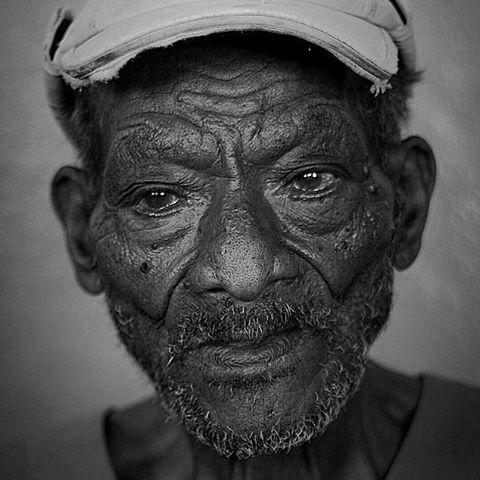
Naod Lemma, Ordinary existence.
The problem with my perception is the problem of attempting to bring to Africa what is already here. No matter what conceptual imports may have slithered their way into our individual and collective lives, creativity does not fit that form. If Africa is the topsoil, creativity is the limitless network of organs inching through an enormous porous foundation, literally enabling life. Daily life is an act of resilience manifesting through a creative process. When, in different areas, we are encouraged by outsiders to aim to match foreign spaces and styles in creative/expressive pursuits (spaces in which we seldom have power to make an impact) it is misguided. The purpose then, of being encouraged to figuratively and literally speak each other’s languages, is to provide examples to one another. To hold a mirror up and siphon out of Africa its catalog of expression.
So, during the AtWork workshop with lettera27 conducted by Simon Njami – where the theme was fittingly ‘What is Home?’ – we did some important things: we received reassurance from those with whom we share a seriousness about expression/art, we had the most prolific demographic spend time with one another, argue with and against each other, build, and speak freely. We were given a space, one without secrets and exclusivity. One where jokes and sarcasm in English may have been futile, but in Amharic they thrived; an opportunity to be in a beautiful garden, unbothered and uncontrolled, to sit beside the ones who will achieve what I dream of. A space only about creative expression. A space that underlined the importance of our duty to participate in creating everything from the inside out, and support our community in doing the same. To recognize the purpose and limits of collaboration, help, and influence. A reminder that Africans must partially learn from other cultures, then work over-time to enrich our own, and present all we have to give. For our own sake.
photo: Naod Lemma.
With the support of 
